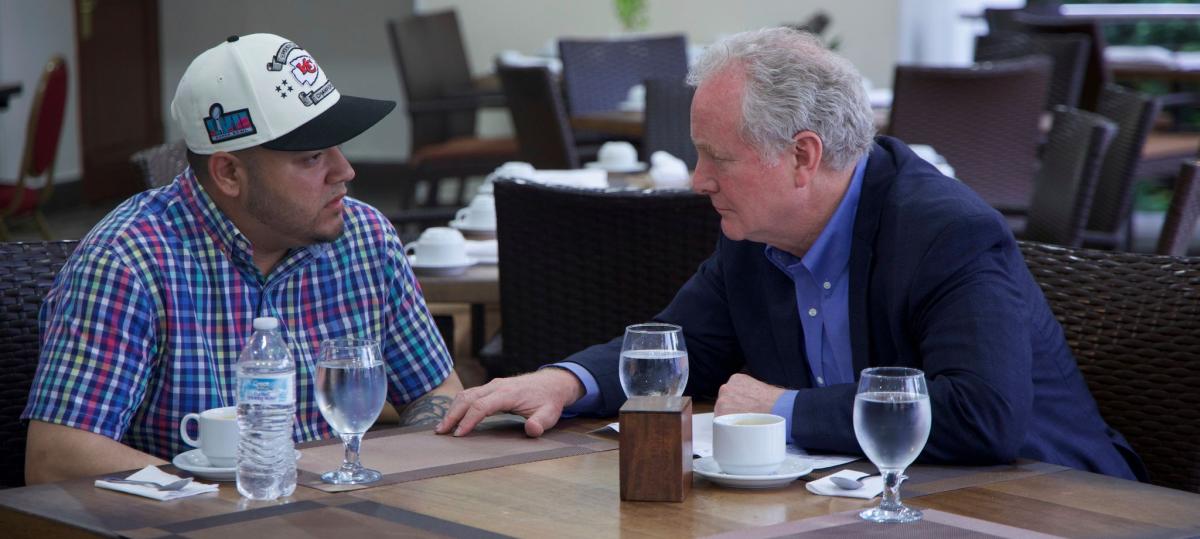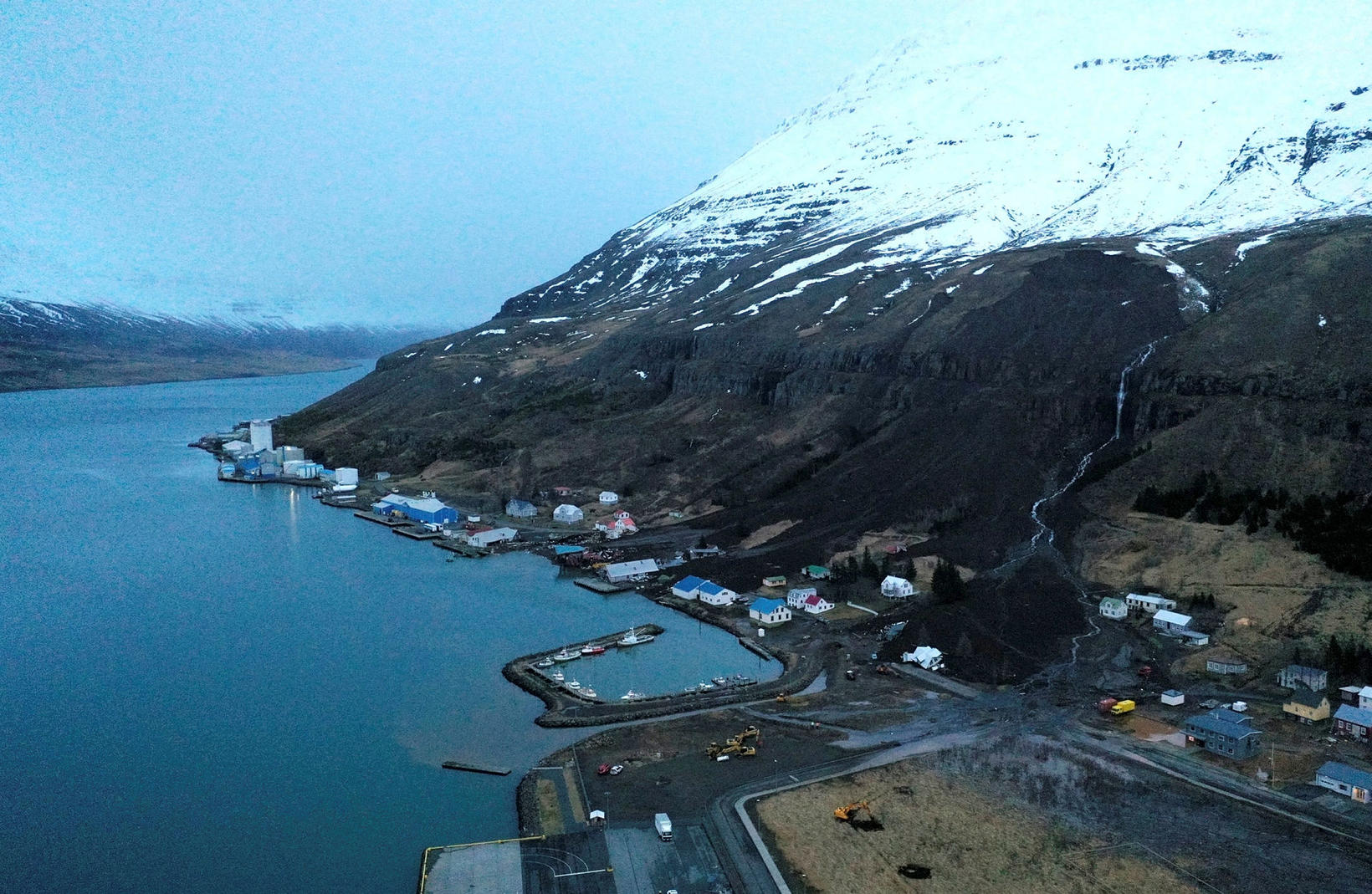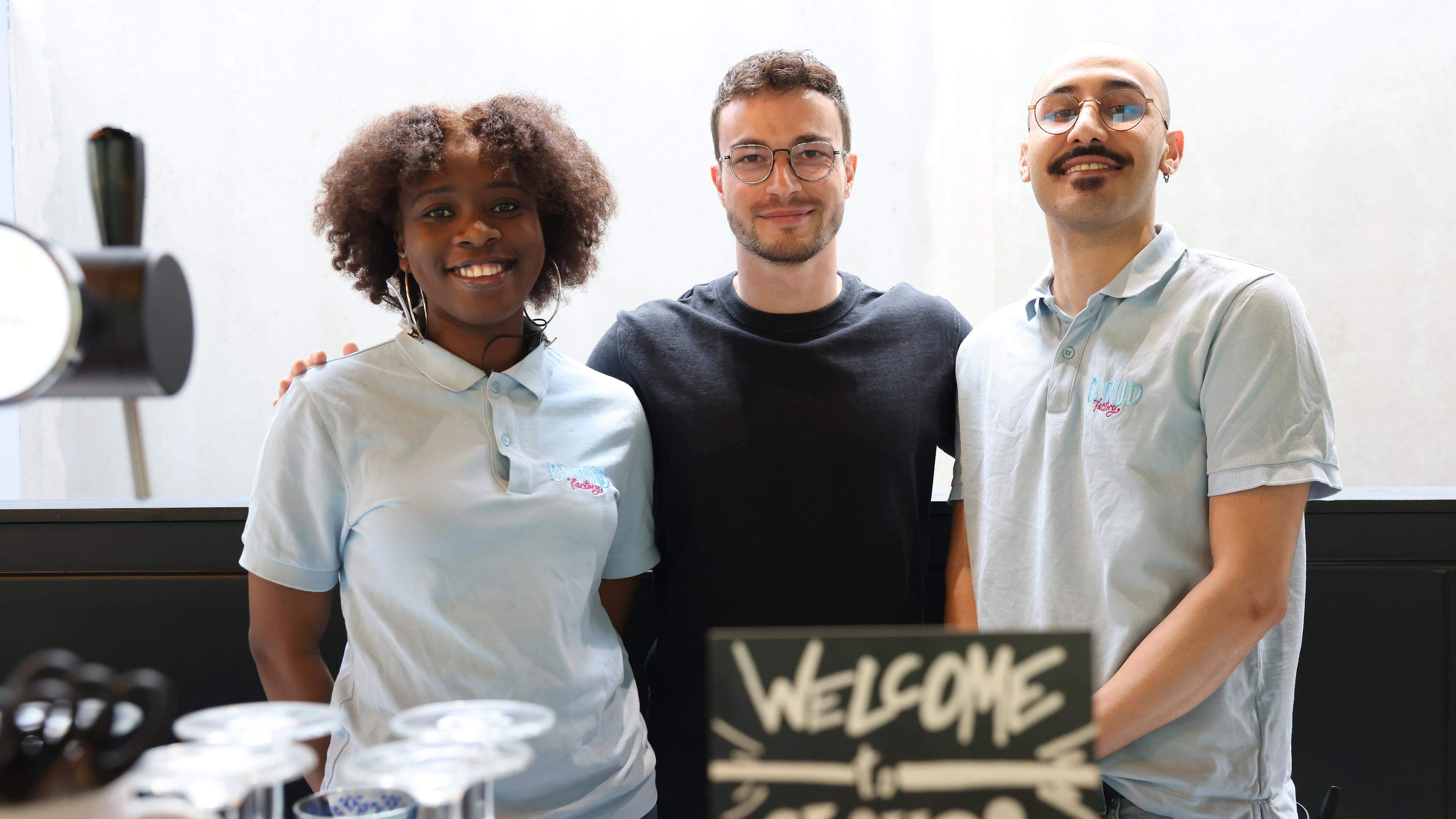Ali El Helou Tiyah (1975-2025) was always ready for others
/s3/static.nrc.nl/images/gn4/stripped/data130283488-334783.jpg|https://images.nrc.nl/IDxaoitK6xvcJhYZ5-nnk5R6ZG8=/1920x/filters:no_upscale()/s3/static.nrc.nl/images/gn4/stripped/data130283488-334783.jpg|https://images.nrc.nl/MhNO-OMTsQhFdMn4ow5q3Vopf0A=/5760x/filters:no_upscale()/s3/static.nrc.nl/images/gn4/stripped/data130283488-334783.jpg)
Ali El Helou Tiyah had little, but always enough to help someone else. For almost 21 years, the Sudanese lived undocumented in the Netherlands, and yet he always managed to support others. « If Ali had money, he cooked for everyone, » says his friend Abdulal Rabih, who met him in 2017 at a demonstration in The Hague and who lived in the AZC in Soesterberg for a while at the same time as El Helou Tiyah. « He was really a good cook and if there was a party, he prepared the food. »
Ali El Helou Tiyah was sweet, caring, sympathetic, generous and helpful, say friends and acquaintances. A connector in the Sudanese community in the Netherlands. Important for many people and yet always modest. « There are only a few people I call ‘brother’, » says Margreet Jenezon, fundraiser at the Utrecht Foundation, who offers help to people without a residence permit. « And Ali was such a person for me. » She felt a special bond with him, she says, and often visited him, for example, when he was in foreigners’ detention.
Ali El Helou Tiyah was born in 1975 in the South Kordofan region in Sudan. He was intelligent and worked hard at school. He later went to study in the capital Khartoum and found a job as an accountant. He also became active at the UMMA party.
To be able to pay for his marriage, he left for Iraq to work there for a year. But life took a different turn. In Sudan another political wind had started to blow and El Helou Tiyah was unable to return because of his political activism. The marriage never came again. And when the United States invaded Iraq in 2001, he was no longer safe there.
In the summer of 2002 he applied for asylum in the Netherlands for the first time. This started a long period in which he was always involved in procedures, and always pulled the short end. For example, the IND did not believe its origins, based on a language analysis. The result was that he survived undocumented in the Netherlands. Sometimes in an AZC, if he had received a postponement of departure, sometimes in reception locations or with friends on the couch.
Neighbors called the police when he watered the plants to someone who was on vacation
Detention
« Ali feared for his life if he had to go back to Sudan, » says his friend Elemam Musa. El Helou Tiyah had remained active for the UMMA party all this time and even became treasurer of the Dutch branch. He visited all demonstrations for freedom and security in Sudan. « And he did not stand at the back, » says Abdulal Rabih. « He took the floor, and he could do that very well. He had a very calm way of talking. »
El Helou Tiyah was in aliens detention no less than four times – in total – in total. Perhaps the most painful arrest was when he gave the plants water with someone on vacation. Neighbors found it suspicious and called the police. For him it meant months of imprisonment, fear and humiliating situations. « For example, he said that he had been brought to the hospital with handcuffs – Ali had many health problems, » says Jenezon. Rabih: « He never hurt anyone, and yet he was locked up as if he were a criminal. He found that very painful. »
Once the expansion of Ali El Helou Tiyah was very close. A ticket had already been booked for Sudan before January 22, 2019. A day before departure, the deportation was canceled. He was released, but not long after, ended up in aliens detention in 2020.
« I had not been a care provider for years, but I had a lot of telephone contact with Ali at the time, » says Margreet Jenezon from Stichting Stop. « I was worried about him. He sounded tense and he had a lot of problems again: back pain, pain to his eyes and ears, and a rare but very annoying form of diabetes. » Corona broke out, and the people in alien detention had to stay on their cells alone 21 hours a day. There was no view of expansion, after all, there were no flights. Together with others, Jenezon regularly started demonstrating Coronaproof at Detententcentrum Rotterdam to encourage prisoners. Abdulal Rabih was also there; He then stood on a hill nearby to the people in the center. « May I go to you, » from Claudia de Breij, he sang through a megaphone.
Photo Private Archives
To the Council of State
When Sudanese President Omar Al-Bashir was deposited in April 2019, the question was: does that mean that Sudan is again safe for his political opponents? A case was conducted, up to the Council of State, about three Sudanese in the Netherlands, including Ali El Helou Tiyah. The conclusion: Sudan was not safe.
Ali was recognized as a political refugee because of his opposition activities at the end of 2022, after twenty years and eight months in the Netherlands, ten AZCs and four periods in aliens detention. « Ali was so happy, » says Margreet Jenezon. « He bought cake and a lot of friends came by spontaneously in his room in Utrecht, where he was staying at the time. »
It had always been that way: Ali had little, but as soon as he could miss something he gave it away. He helped friends with accounting, supported a young friend in foreigners’ detention and paid the study of family members in Sudan. His cousin Mohamed Doudi tells by telephone from the United States: « Ali always took care of others and sometimes forgot to stand up for himself. »
He was busy with integration, and looked forward to his own home. In the long term he wanted to start his own business. On Saturday, February 15, he went to the hospital with pain complaints; He was bothered by his leg. Abdulal Rabih was already arranging an electric bicycle, so that Ali would soon be more mobile again. On February 18, he wondered if Ali would be back in the AZC in Harderwijk. That day a message came from the hospital: Ali had died. « I am devastated, » says Rabih.
On the farewell of Ali El Helou Tiyah in a Utrecht mosque, hundreds of people met. « My first reflex was to ask him to come and cook, » says Rabih. « I know exactly what he would have said: of course! »

/s3/static.nrc.nl/images/gn4/stripped/data133306951-418567.jpg|https://images.nrc.nl/Aqhex4vuXDkTG2ibAuxQ999h3pQ=/1920x/filters:no_upscale()/s3/static.nrc.nl/images/gn4/stripped/data133306951-418567.jpg|https://images.nrc.nl/IUxmNDWQ6SsEQ92WXa797HqINn0=/5760x/filters:no_upscale()/s3/static.nrc.nl/images/gn4/stripped/data133306951-418567.jpg)
/s3/static.nrc.nl/images/gn4/data133314127-765aec.jpg)
:format(webp)/s3/static.nrc.nl/wp-content/uploads/2025/06/05163439/data133217982-f902a2.jpg)




